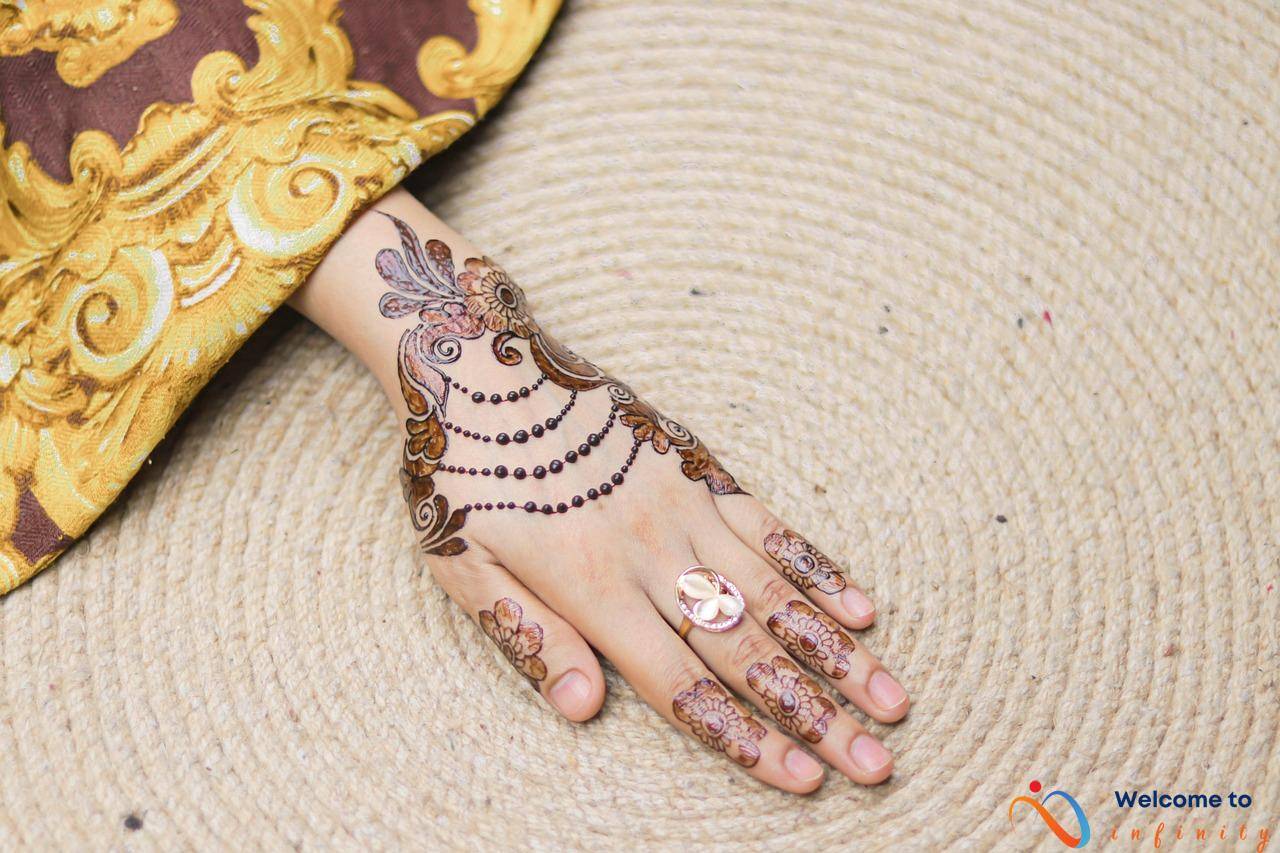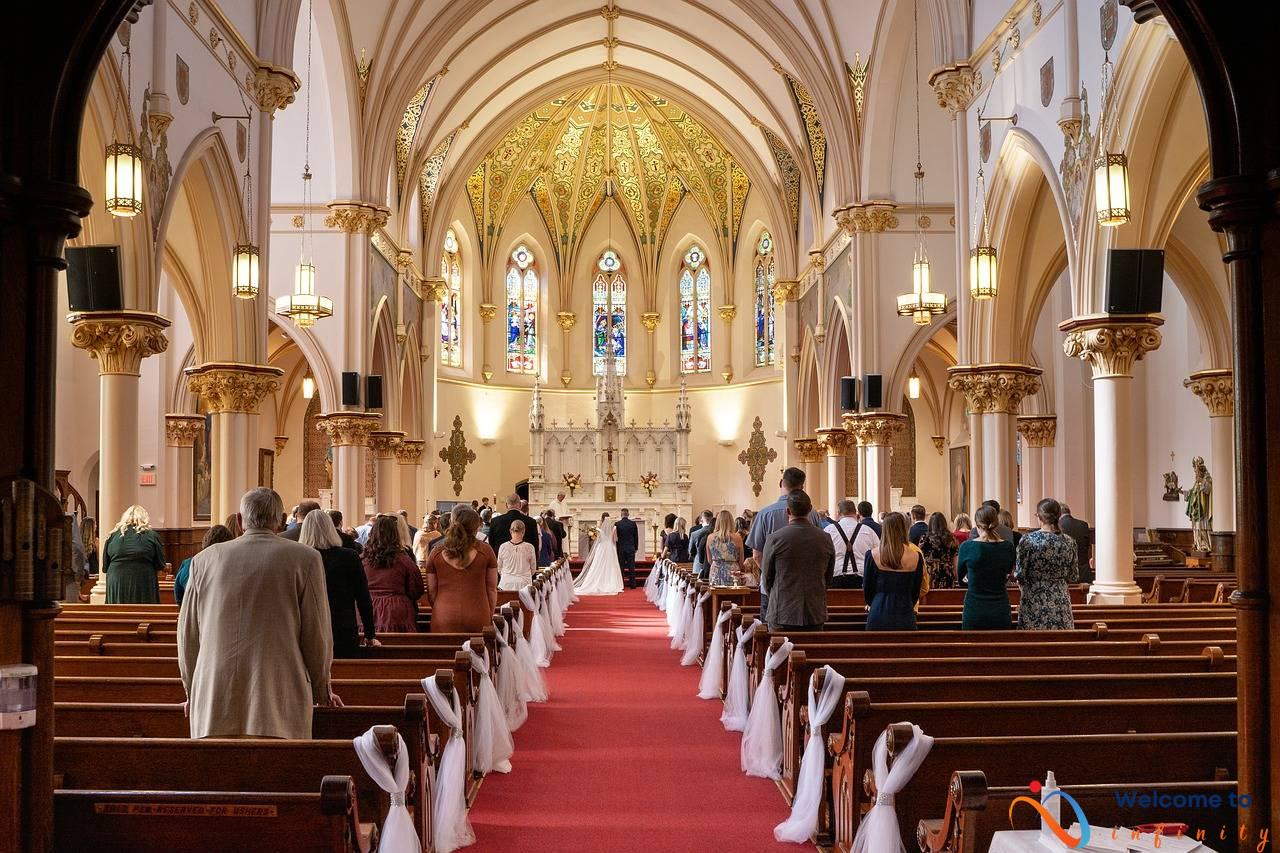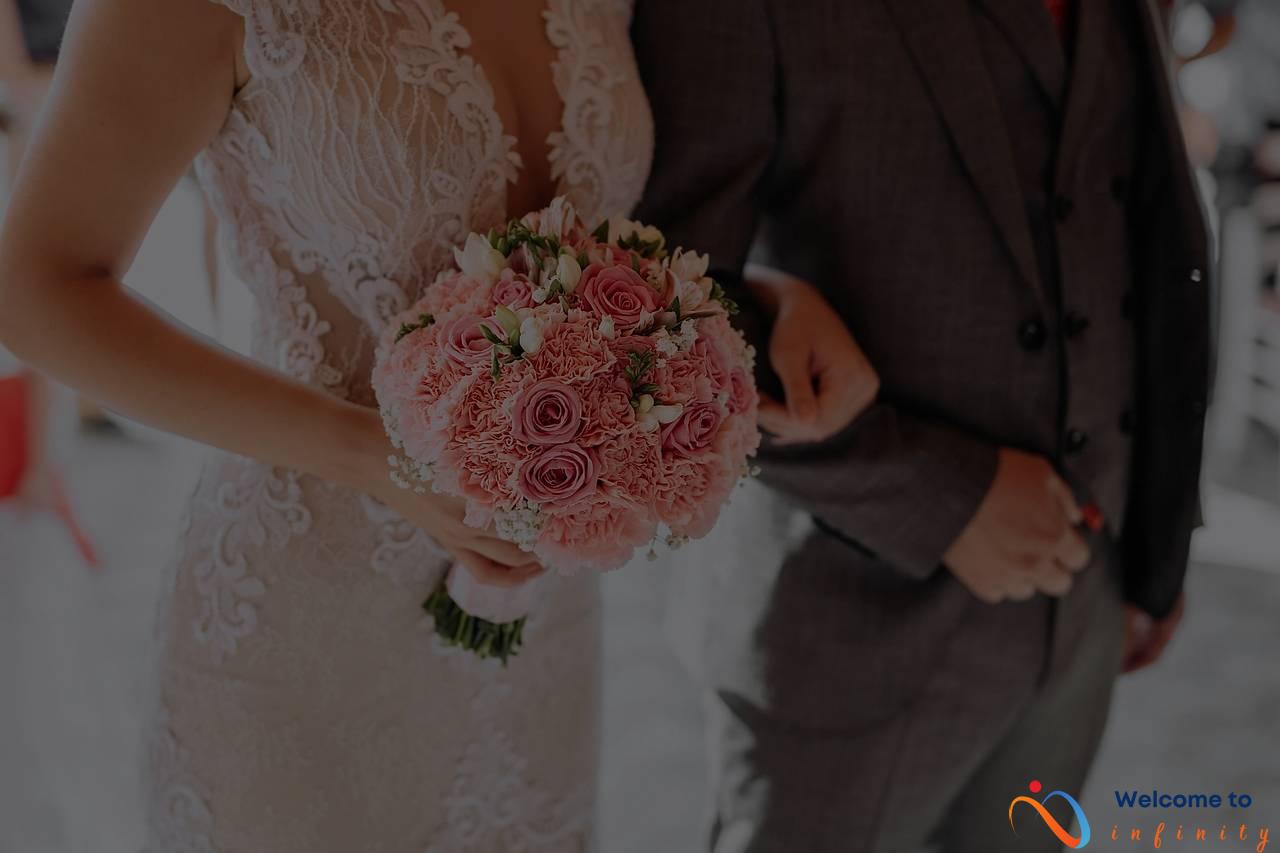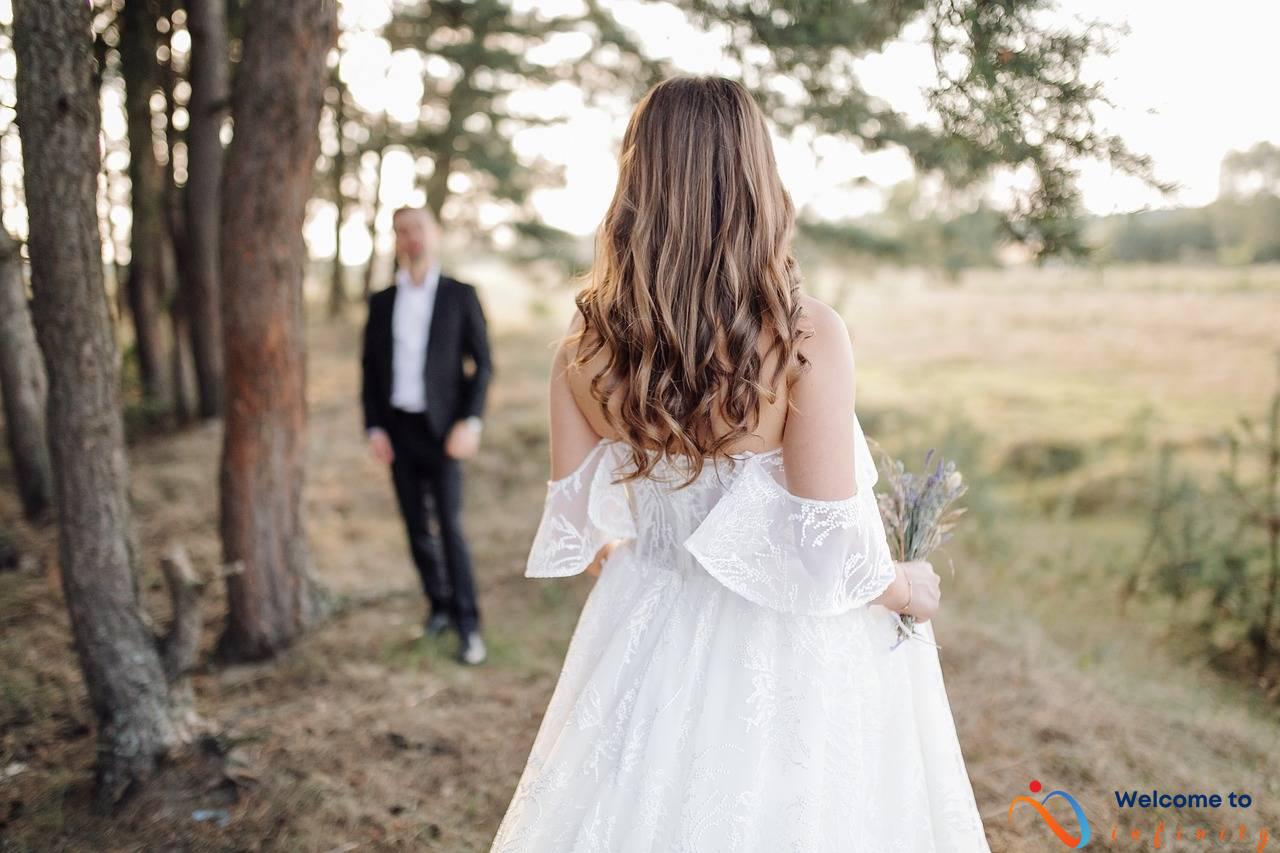Weddings are one of life's biggest milestones and planning a perfect ceremony is crucial to making it memorable. The thought of planning a wedding ceremony can be scary, but it doesn't have to be. By using the right tips and knowledge, planning can be easy, enjoyable, and stress-free.
The first step in planning the perfect wedding ceremony is to create a budget. It's important to allocate funds to the most important aspects such as the venue, catering, and photography. Once the budget is set, it's time to start planning the details.
Choosing the right venue is crucial for a perfect wedding ceremony. The venue should reflect the couple's style and accommodate the desired number of guests. Consider the weather when choosing an outdoor or indoor venue. Pick a time that accommodates the expected weather conditions and lighting for the perfect atmosphere.
The décor is an essential part of the wedding ceremony. Create a beautiful surrounding by incorporating the right colors and flowers that match the wedding theme and venue. It's also important to hire reliable vendors including a photographer, DJ, caterer, and florist, to ensure every aspect of the wedding ceremony runs smoothly.
Creating a timetable helps keep the wedding ceremony organized and on schedule. Assign tasks to specific people including the wedding planner and vendors. It's also essential to choose a wedding officiant that complements the couple's beliefs and values for a more personalized wedding ceremony.
Lastly, incorporate personal touches into the ceremony, such as writing letters to one another or adding special wedding traditions to make it memorable and unique. Double-check all details, including the guest list, seating arrangements, and vendor schedules, to ensure everything is in place and ready for the big day.
Set a Budget
When planning the perfect wedding ceremony, one of the first things to consider is your budget. Before making any decisions, create a budget that sets aside funds for the most important aspects of your wedding ceremony. This will help ensure that you do not overspend or leave out important aspects of your wedding ceremony.
When creating a budget, start by listing the most important parts of your wedding ceremony. This could include the venue, food, decor, and flowers. Next, allocate funds to each part of the ceremony based on importance. For example, if the venue is a priority for you, allocate a larger portion of your budget towards it.
| Important Wedding Ceremony Aspects | Allocated Funds |
| Venue | $10,000 |
| Food | $8,000 |
| Decor | $5,000 |
| Flowers | $2,500 |
| Music/Entertainment | $2,500 |
| Photography/Videography | $5,000 |
| Wedding Dress/Tuxedo | $3,500 |
| Invitations/Stationery | $1,500 |
| Wedding Planner | $4,000 |
| Cake | $1,500 |
| Transportation | $2,000 |
Remember to leave some extra room in your budget for unexpected expenses or emergencies. It's also important to keep track of your spending and adjust your budget accordingly throughout the planning process.
By setting a budget and allocating funds to the most important aspects of your wedding ceremony, you can help ensure that your special day is everything you dreamed of without breaking the bank.
Select the Perfect Venue
Selecting the perfect venue is a crucial aspect of planning a perfect wedding ceremony. The venue should reflect the couple's style and accommodate the desired number of guests. When choosing a venue, consider the location, accessibility, and parking options for guests.
Whether you prefer a rustic barn, a beachside resort, or a traditional church, ensure that the venue matches the wedding theme and style. Think about the size of the venue and whether it can comfortably host the wedding party and guests. A spacious venue allows everyone to move around, dance, and mingle comfortably.
You should also consider the amenities and services provided by the venue. Does the venue offer a catering service or allow outside catering? Is there a bridal suite or designated area for the wedding party to get ready? Is there any outdoor space for the ceremony or cocktail hour? Answering these questions will help you choose the best venue for your special day.
When selecting an outdoor venue, take into account the weather conditions and season. Consider renting a tent or indoor option in case of inclement weather. A backup plan will ensure that the ceremony goes smoothly, no matter the weather.
It's important to book the venue well in advance, especially if you're planning a wedding during peak season. Secure the venue as soon as possible, so you can start planning the other aspects of the ceremony.
- Choose a venue that accommodates the desired number of guests
- Select a venue that matches the wedding theme and style
- Consider amenities and services provided by the venue
- Book the venue in advance
By selecting the perfect venue, you set the tone for the entire wedding ceremony. Your guests will be impressed by the beauty and style of the venue, making your special day even more unforgettable.
Consider the Weather
One of the most important aspects to consider when planning a perfect wedding ceremony is the weather. Weather can have a significant impact on the atmosphere of the ceremony, so it's crucial to take into account the season and weather forecast when selecting an outdoor or indoor venue.
If you're planning an outdoor wedding, consider the likely weather conditions for the time of year. If it's in the summer, it's best to choose a time when the sun isn't too strong, to avoid guests getting too hot or sunburned. If it's in the fall, you may want to consider the possibility of rain and choose a venue with covered spaces or a backup indoor area in case of rain.
It's also important to think about the location of your wedding. If you're getting married in a region prone to extreme weather events, such as hurricanes or blizzards, you may want to consider a different time of year or location to avoid any disruptions to your big day.
When planning an indoor wedding, keep in mind that extreme temperatures or poor lighting can also affect the atmosphere. Make sure the venue is well-lit and that the temperature is comfortable for guests.
In summary, when selecting a venue for your wedding ceremony, always consider the season and weather forecast, especially if you're planning an outdoor wedding. By keeping these factors in mind when choosing a location, you'll create the perfect atmosphere for a beautiful and memorable wedding ceremony.
Select the Right Time
When it comes to selecting the right time for the wedding ceremony, it is important to consider the expected weather conditions and lighting for the perfect atmosphere. If you want to have an outdoor wedding, choose a time when the weather is expected to be warm and sunny. However, if you prefer an indoor wedding, you can choose a time that suits both your preferences and the availability of the venue.
To help navigate the process of finding the perfect time for your ceremony, consider creating a table with hourly weather predictions, and compare it with the venue's lighting conditions to find the perfect combination. For example, if your ceremony is outdoors, choose a time when the sun is at its peak, but not too harsh, for the best lighting conditions. Alternatively, if your ceremony is indoors, you can choose a time that complements the natural or artificial lighting of the venue.
It is also important to keep in mind the potential for weather changes on your wedding day. It's wise to have a backup plan in case of unexpected weather conditions, such as a sudden downpour or strong winds. Keep in mind that some venues will have access to covered areas as a backup plan in case the weather suddenly changes, so be sure to inquire about such options when selecting the venue.
Ultimately, the key is to choose a time that makes the atmosphere of your wedding ceremony perfect. Consider the lighting conditions, weather, and any potential for last-minute changes that may affect the timing of the ceremony. With proper planning and consideration, you can select the perfect time for your wedding ceremony, and create memorable and beautiful memories for years to come.
Design the Perfect Décor
To design the perfect décor for your wedding ceremony, it's important to start with a clear vision of your wedding theme and match it with the right colors and flowers. Choose a color palette that complements the venue and wedding attire. You can use online tools to create a color scheme and a mood board for inspiration.
When selecting flowers, consider the season and colors that complement the wedding theme and venue. Consult with a florist to create stunning floral arrangements that match your vision. To save costs, you can also opt for potted plants or DIY flower arrangements.
Another aspect to consider is lighting. Proper lighting can enhance the ambiance of the venue and highlight the décor. Choose the right lighting fixtures and bulbs that complement the wedding theme and enhance the mood.
In addition to flowers and lighting, incorporate personal touches into the décor to make it unique and memorable. This can include custom signs, table runners, and centerpieces that reflect the couple's style and interests.
To ensure that everything comes together seamlessly, create a detailed décor plan with a timeline and a list of supplies needed. You can also create a mock setup to finalize the décor before the big day.
In conclusion, designing the perfect décor for your wedding ceremony involves careful planning and attention to detail. By incorporating the right colors, flowers, and personal touches, you can create a beautiful and memorable setting that reflects your unique style and vision.
Select the Right Vendors
Choosing reliable vendors is essential to ensuring that your wedding ceremony runs smoothly. You should start by making a list of all the services you may need. The most common vendors include a photographer, DJ, caterer, and florist.
When selecting a photographer, look at their portfolio to ensure their style aligns with your wedding theme. You should also ask for references from previous clients to ensure they have experience shooting weddings.
The DJ will be responsible for setting the tone of the wedding reception, so it's important to choose a professional who has experience in this field. Ask for a playlist of songs they have played in previous weddings and check their references.
The caterer is responsible for serving the food and drinks during the wedding reception. Choose a caterer who has experience in wedding events and can work within your budget. It may be helpful to schedule a tasting before making your final decision.
A florist is responsible for providing the floral arrangements, such as the bridal bouquet, centerpieces, and ceremony decorations. Choose a florist that can create the arrangements you have in mind and can work within your budget. Review their portfolio and references before making a final decision.
It's essential to hire vendors who are reliable and experienced to ensure that every aspect of the wedding ceremony runs smoothly. Finalize the agreements and contracts with your vendors and keep in touch with them in the days leading up to the wedding ceremony.
Create a Timetable
Creating a timetable is an integral part of the wedding planning process. It not only helps keep the wedding ceremony organized but also ensures everyone involved, including the wedding planner and vendors, are on the same page.
To create a timetable, start by outlining the sequence of events for the wedding ceremony and reception. This should include the time and location of each event, such as the wedding ceremony, cocktail hour, and reception.
Next, assign specific tasks to individuals responsible for carrying out each event. For example, the wedding planner may be responsible for setting up the ceremony and reception spaces, while the caterer may be responsible for setting up tables and serving food. Be sure to communicate these tasks clearly to avoid any confusion or misunderstandings.
It's also essential to establish a timeline for each task leading up to the wedding ceremony. This includes sending invitations, selecting the music, choosing the menu, and deciding on the wedding favors. Assign deadlines to each task and ensure they are completed on time.
To ensure everyone is aware of the timetable, distribute copies to the wedding party, officiant, and vendors. You can create a table or list to make it easier to read and understand.
Remember, the timetable is not set in stone and can be adjusted as needed. However, keeping everyone informed and on schedule will help make your wedding ceremony stress-free and memorable.
Select the Right Wedding Officiant
Choosing the right wedding officiant can make the ceremony a more personalized and meaningful experience. When selecting an officiant, consider their personality, experience, and values to ensure they align with the couple's beliefs and values.
Some couples prefer to choose a religious leader, such as a priest, rabbi, or minister, to perform the ceremony. Others opt for a non-denominational officiant or a friend or family member who is ordained. It is important to communicate with the officiant beforehand to ensure they understand what the couple wants and to personalize the ceremony to reflect their beliefs.
Couples should also consider the officiant's speaking style, ability to engage the audience, and their willingness to incorporate personal touches into the ceremony. Creating a list of questions for the officiant beforehand can help clarify their role and make sure they are the right fit for the couple's ideal wedding ceremony.
In addition to the wedding ceremony, couples should also consider the officiant's role during the pre-wedding and post-wedding activities, including rehearsal dinners and post-ceremony events. The officiant can also provide guidance and counseling to help the couple navigate any challenges that may arise during their marriage.
Overall, choosing the right wedding officiant is an important decision that can have a significant impact on the wedding ceremony. By selecting someone who complements the couple's beliefs and values, and taking the time to personalize the ceremony, couples can make their wedding day even more special and unforgettable.
Include Personal Touches
One of the most important aspects of a wedding ceremony is adding personal touches that make it unique and memorable. There are many ways to incorporate personal touches into the ceremony, such as writing letters to one another or adding special wedding traditions. Here are some ideas to make your wedding ceremony stand out:
- Write personal letters to one another expressing your love and commitment, and exchange them during the ceremony.
- Incorporate family traditions or cultural customs that hold significance for you and your partner. This adds depth and a personal connection to your ceremony.
- Include a meaningful poem or reading that speaks to your relationship and future together.
- Design a unique unity ceremony, like water pouring or candle lighting, to symbolize the joining of two families or individuals.
- Use sentimental keepsakes or family heirlooms as part of your wedding décor or accessories.
Personal touches add a layer of depth and connection to your wedding ceremony and make it a day you will never forget. Be creative and infuse your wedding day with your personality and individual style.
Finalize Details
Finalizing all the details in the weeks leading up to your wedding ceremony is crucial to ensure a stress-free and perfect wedding day. Double-checking everything will help you catch any discrepancies or last-minute changes that need to be made.
Firstly, make sure you have finalized your guest list and that everyone has RSVP'd. This will help you get an accurate headcount and plan seating arrangements accordingly. You can use a wedding planning software or create a spreadsheet to keep track of the guest list and their RSVPs.
Once the guest list is finalized, seating arrangements can be made. Consider the relationships between guests and ensure that they are seated with people they are comfortable with. The seating plan can be made using a seating chart creator online or even drawn out on a piece of paper.
In addition to the guest list and seating arrangements, it's important to confirm the schedules and details of all vendors. Make sure that all vendors are aware of the schedule for the day and that they have the correct address and contact information for the wedding ceremony venue.
Finally, in the weeks leading up to the wedding ceremony, it's important to make sure that all of the decorations and arrangements are in place and ready to go. You can use a wedding planning checklist to make sure that no detail is overlooked.
By double-checking all of the details leading up to the wedding ceremony, you can be confident that everything is in place and ready for the big day. This will allow you to relax and enjoy the magic of your wedding day with your loved ones.











